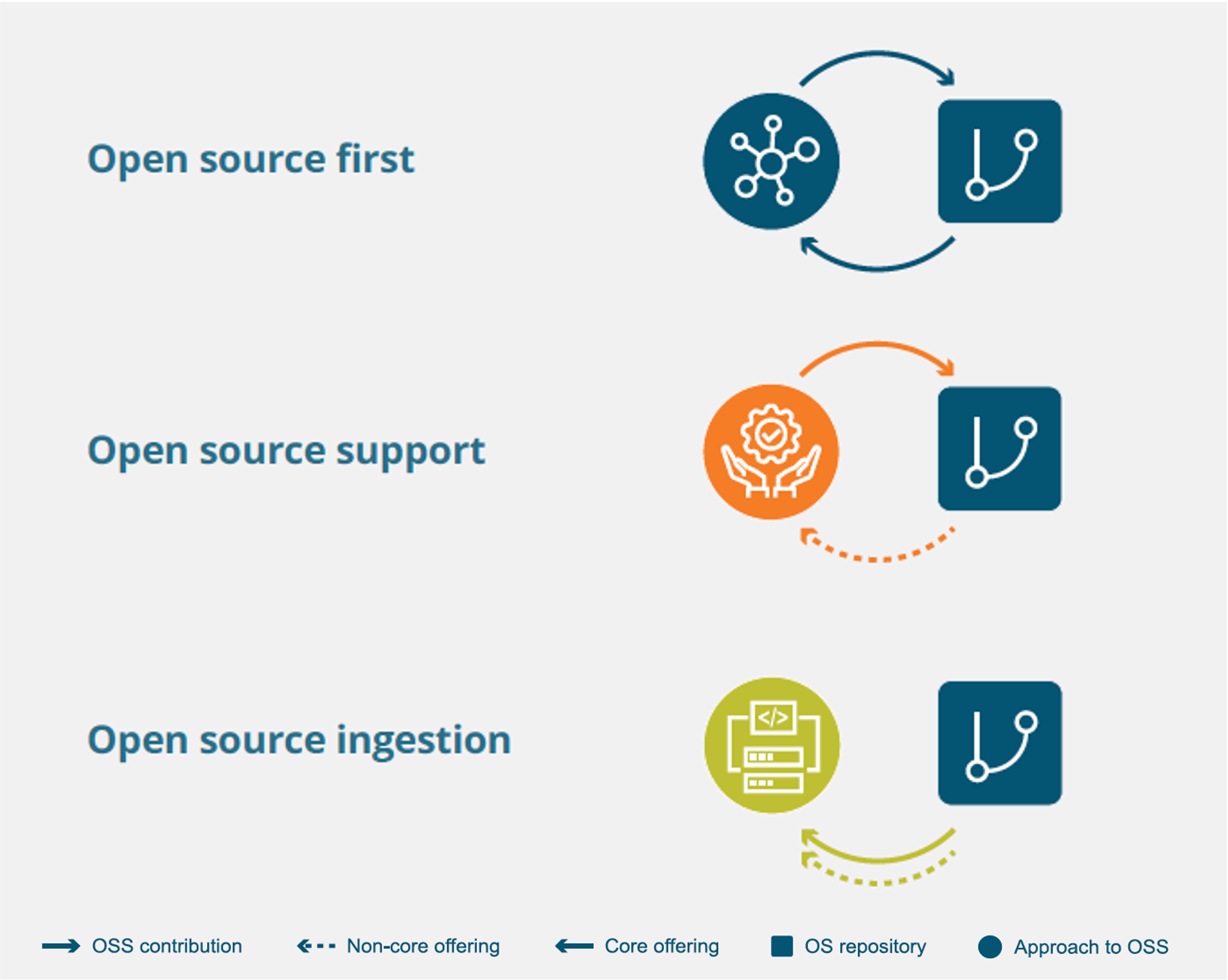ELIXIR has published a report on the contribution of open source software and workflows (OSSW) to innovation in the life sciences. Carried out in conjunction with Prof. Hannes Rothe at the University of Duisburg-Essen, the report explores current industry practices and provides evidence of the role OSSW play in driving the commercialisation of life science research.
Large, complex datasets are fundamental to the life sciences and form the backbone of innovation. Effective exploitation of data, for example in developing new products and services, requires robust analytical workflows and sustainable software. Understanding how OSSW are used in industry provides evidence for their economic value and helps guide the funding and coordination of open access tools.
The report combines results from interviews with representatives from bioinformatics companies and quantitative analysis of data collected from GitHub and the Galaxy platform. The findings show that OSSW accelerates innovation and strengthens trust, reproducibility and cost-effectiveness. Open workflows help researchers automate data-intensive processes, enhance machine learning reproducibility and share validated tools with the global scientific community.

Companies that prioritise OSSW and community engagement often see benefits in market growth, talent acquisition and quality improvement. Based on the interviews, the report categorised approaches to adopting OSSW into three main strategies:
- Open source first: OSSW form the core of the business model
- Open source support: OSSW are integrated to enhance proprietary tools
- Open source ingestion: Proprietary tools are used internally, but are not part of core products of services
The study analysed the Galaxy ecosystem to identify key trends, how workflows and tools are shared and the impact of the most accessed tools. The findings show a landscape shaped by a few heavily used tools alongside a broad long tail, with sustained maintenance emerging as a key driver of adoption. The widespread use of these tools in industry reflects Galaxy’s emphasis on reliability, automation and effective data management.
By showing how companies use, adapt and build on OSSW, the report highlights the wider economic and scientific benefits of a healthy open source ecosystem, reinforcing the need to support high-quality, sustainable open source services. A clearer understanding of where these tools add economic value will help make the case for long-term investment in their sustainability and guide future development priorities.